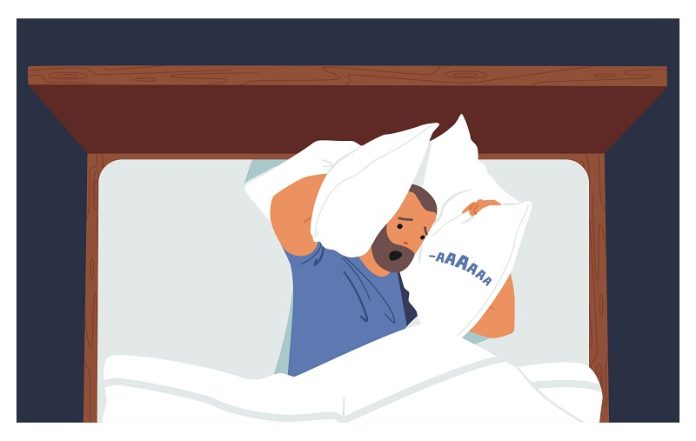
Obstructive sleep apnea (OSA) is a common and serious sleep disorder where the airway becomes blocked during sleep, causing breathing to repeatedly stop and start.
This can lead to poor sleep quality and a range of health issues. Understanding how to treat and prevent OSA can improve the quality of life for those affected.
OSA occurs when the muscles in the throat relax too much during sleep, causing the airway to narrow or close.
This blockage can reduce or completely stop airflow, leading to snoring, choking, and gasping for air. Factors like obesity, a narrow airway, and certain medical conditions can increase the risk of OSA.
One of the most effective treatments for OSA is Continuous Positive Airway Pressure (CPAP) therapy. CPAP involves wearing a mask over the nose or mouth while sleeping. The mask is connected to a machine that delivers a constant stream of air, keeping the airway open.
Research has shown that CPAP significantly reduces symptoms of OSA, improves sleep quality, and lowers the risk of related health problems like high blood pressure and heart disease.
For those who find CPAP uncomfortable or difficult to use, alternative treatments are available. One option is an oral appliance, which is a custom-fitted device worn in the mouth during sleep.
It works by keeping the jaw in a forward position, helping to keep the airway open. Studies have found that oral appliances can be effective for people with mild to moderate OSA.
In some cases, surgery may be necessary to treat OSA. Surgical options include removing excess tissue from the throat, repositioning the jaw, or implanting devices that help keep the airway open.
Surgery is typically considered when other treatments have not been successful, and research shows that it can be effective for certain individuals.
Lifestyle changes play a crucial role in both the treatment and prevention of OSA. Weight loss is particularly important, as obesity is a major risk factor.
Studies have shown that losing even a small amount of weight can significantly reduce the severity of OSA. Regular physical activity and a healthy diet can help achieve and maintain a healthy weight.
Avoiding alcohol and sedatives before bedtime can also help, as these substances relax the muscles in the throat, making it more likely for the airway to become blocked.
Smoking cessation is another important step, as smoking can increase inflammation and fluid retention in the airway, worsening OSA symptoms.
Sleeping position can also affect OSA. Some people experience fewer symptoms when sleeping on their side rather than their back.
Special pillows or devices can help keep individuals in a side-sleeping position throughout the night. Research supports that positional therapy can be effective for some people with OSA.
Preventing OSA involves addressing risk factors and promoting healthy sleep habits. Maintaining a healthy weight, avoiding alcohol and sedatives before bed, quitting smoking, and establishing a regular sleep routine are all important preventive measures.
For those with anatomical risk factors, such as a narrow airway, regular check-ups with a healthcare provider can help monitor and manage the condition.
Early diagnosis and treatment of OSA are crucial to prevent complications. If you or someone you know is experiencing symptoms such as loud snoring, daytime fatigue, or choking during sleep, it’s important to seek medical advice.
A sleep study, conducted in a sleep clinic or at home, can diagnose OSA and help guide treatment options.
In conclusion, obstructive sleep apnea is a treatable condition with several effective options available. CPAP therapy, oral appliances, and surgery are among the main treatments, while lifestyle changes can significantly improve and prevent OSA.
By understanding these treatment and prevention strategies, individuals with OSA can achieve better sleep and overall health. Research continues to advance our understanding of OSA, offering hope for even more effective treatments in the future.
If you care about sleep, please read studies about herb that could help you sleep well at night, and these drugs could lower severity of sleep apnea by one third.
For more information about sleep, please see recent studies that coffee boosts your physical activity, cuts sleep, affects heartbeat, and results showing how to deal with “COVID-somnia” and sleep well at night.
Copyright © 2024 Knowridge Science Report. All rights reserved.


